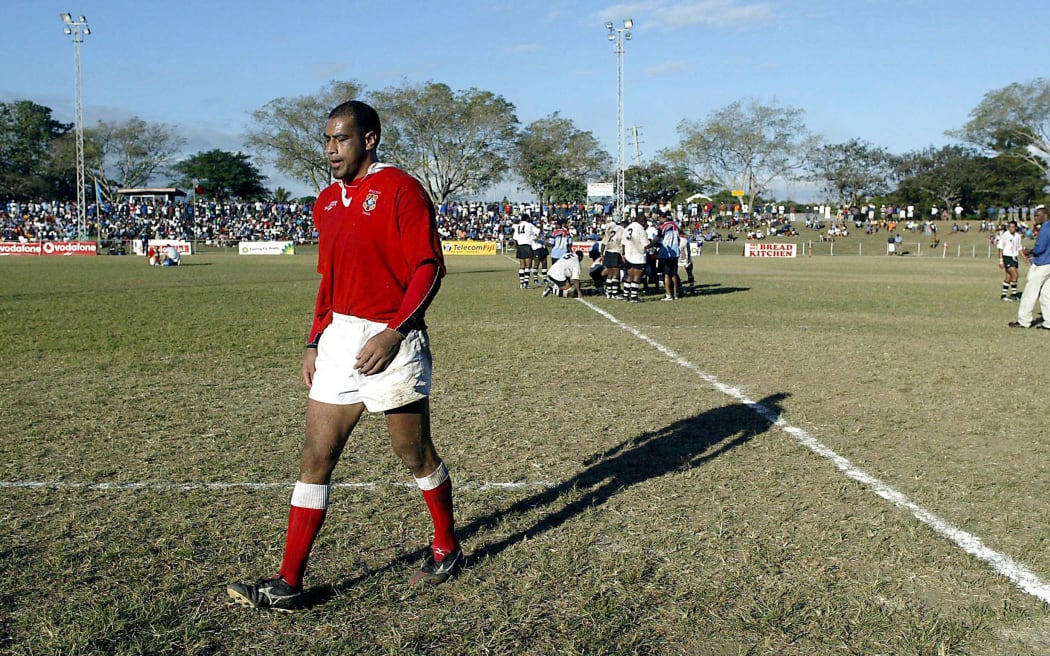World
Former Tonga Captain Calls for Enforcement of Rugby Contract Rules

A former captain of the Tonga national rugby team, Inoke Afeaki, has voiced significant concerns regarding the contractual restrictions placed on Pacific players based in New Zealand. His remarks follow reports that these players are barred from representing their home nations while under contract with Super Rugby teams. Afeaki’s comments were made during an interview with Pacific Waves, highlighting a growing issue in international rugby.
Afeaki indicated that it is improbable for Super Rugby contracts to explicitly prohibit Pasefika players from competing for their national teams. He noted that players have been signing agreements that limit their ability to participate in international matches outside of representing the All Blacks or their respective clubs. This situation has drawn attention, particularly after statements from Mick Byrne, coach of the Flying Fijians, who told RNZ Pacific last month that such contractual agreements exist.
New Zealand Rugby (NZR) has responded by stating that all contracted players have the freedom to choose which national team they wish to represent. A spokesperson clarified that while clubs can contract up to three players who are not eligible for New Zealand, the majority of players have committed to representing New Zealand teams throughout their contracts.
Afeaki elaborated on the nuances of these agreements, stating that while there may not be explicit restrictions in the contracts, clubs often include specific dates when players must be available. “They’ll put in dates saying: ‘This is the period that you’re available, and you have to focus on this’,” he explained. He added that clubs are motivated to maintain a competitive team during international windows when their All Black players are away.
The contract situation has broader implications for players of Pacific heritage, who may find themselves in a difficult position due to the scheduling of international fixtures. Afeaki pointed out that if a Pacific nation schedules a test match outside the designated windows set by World Rugby, clubs may refuse to release their players, citing contract violations. This dynamic can contribute to a lack of representation for Pacific players on the international stage.
According to Afeaki, World Rugby must adopt a firmer stance on the scheduling of international matches to ensure that players are not unfairly restricted. He stressed that any international fixtures during the test windows should take precedence over club obligations, a stance that he believes should be enforced by governing bodies such as World Rugby and New Zealand Rugby.
“The regulation clearly states that all players are allowed to play for their country during that test window,” Afeaki asserted. “What clubs and rugby unions are doing is clearly out of that regulation, and that’s breaking the law in the game.” His comments reflect a need for accountability within the sport and an urgent call for reform.
Afeaki, who represented Tonga in the 1995 and 2003 Rugby World Cups, has extensive experience in rugby, having played and coached across various countries, including New Zealand, France, and Japan. His insights bring a critical perspective to the ongoing discussions about player rights and international representation in rugby.
As the debate continues, the actions taken by rugby governing bodies may determine the future landscape of international rugby and the opportunities available to players of Pacific heritage. The enforcement of clear and fair contract rules is essential to ensure that all players can proudly represent their nations without conflicting obligations to their clubs.
-

 Top Stories1 month ago
Top Stories1 month agoCommunity Mourns Teens Lost in Mount Maunganui Landslide
-

 Entertainment6 months ago
Entertainment6 months agoTributes Pour In for Lachlan Rofe, Reality Star, Dead at 47
-

 World3 months ago
World3 months agoPrivate Funeral Held for Dean Field and His Three Children
-

 Top Stories3 months ago
Top Stories3 months agoFuneral Planned for Field Siblings After Tragic House Fire
-

 Sports6 months ago
Sports6 months agoNetball New Zealand Stands Down Dame Noeline Taurua for Series
-

 Entertainment1 month ago
Entertainment1 month agoJulian Dennison Ties the Knot with Christian Baledrokadroka in New Zealand
-

 Entertainment5 months ago
Entertainment5 months agoNew ‘Maverick’ Chaser Joins Beat the Chasers Season Finale
-

 Sports6 months ago
Sports6 months agoSilver Ferns Legend Laura Langman Criticizes Team’s Attitude
-

 Sports4 months ago
Sports4 months agoEli Katoa Rushed to Hospital After Sideline Incident During Match
-

 Sports4 months ago
Sports4 months agoAll Blacks Star Damian McKenzie and Partner Announce Baby News
-

 Sports3 months ago
Sports3 months agoNathan Williamson’s Condition Improves Following Race Fall
-

 Politics5 months ago
Politics5 months agoNetball NZ Calls for Respect Amid Dame Taurua’s Standoff





















